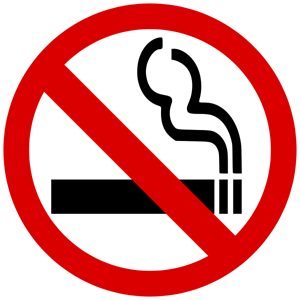 Lāna‘i Community Health Center understands that quitting is DIFFICULT! Less than 5% of smokers are able to quit successfully on their own, and on average, it takes at least 7 to 8 quit attempts, before someone is able to live smoke-free. LCHC’s Tobacco Cessation Program offers educational and behavioral tools specifically developed to make your quitting process easier. Our program is designed to help you be successful and to quit smoking for good!
Lāna‘i Community Health Center understands that quitting is DIFFICULT! Less than 5% of smokers are able to quit successfully on their own, and on average, it takes at least 7 to 8 quit attempts, before someone is able to live smoke-free. LCHC’s Tobacco Cessation Program offers educational and behavioral tools specifically developed to make your quitting process easier. Our program is designed to help you be successful and to quit smoking for good!
Tobacco Cessation
How can the Tobacco Cessation Program help me quit?
The decision and process to quit tobacco is difficult. But the tobacco cessation program teaches you new ways to quit in a supportive setting, along with skills to help you live longer and be healthier.
What kind of Providers will I be seeing?
Behavioral Health providers are clinical psychologists with specialty training in primary care and health psychology. Our providers are trained to give you the support you need to achieve changes and ease the process of quitting smoking.
Do I have to be a patient of the clinic?
No, the LCHC Tobacco Cessation program is open to all residents in the community, ages 18 and older.
Is the Tobacco Cessation program only offered as a group class?
No, the LCHC Tobacco Cessation program is offered on an individual treatment basis, along with group classes. This type of class structure can be helpful in providing extra support for participants as well as a sense of camaraderie.
Will I receive nicotine replacement therapy through the program?
Education on medications and nicotine replacement therapy (NRT) options will be discussed during the course of the program; however, participants interested in medications and NRT will need to obtain prescriptions through their Primary Care provider. Our Behavioral Health providers will work with you and your Primary Care provider to find medication that fits your needs.
How long is the program and what should I expect?
Our 10-week program is designed to support participants through the process of quitting, providing educational and behavioral tools to prepare them for their quit day and prevent relapse. Each class is expected to run 1 to 1 ½ hours in length. The program process will include:
- assessment of your current utilization of tobacco and any specific health needs
- identification of your specific tobacco cessation and health management goals;
- education and behavioral interventions directed toward helping you quit tobacco use and achieve identified health management goals;
- evaluation of your attainment of identified health management goals; and
- assistance in decreasing your risk for cardiovascular disease through weekly blood pressure checks
Aftercare services are also available on an individual basis.
How much does the program cost?
Most insurance companies will cover the cost of the program; however, co-payments per session will vary based on the type of coverage you have. For uninsured individuals, LCHC’s sliding scale fee is available.
How do I sign up?
If you are interested in quitting, call us at 565-6919
Individual sessions are offered on a rolling basis. Advance enrollment is required for the ten-week class program. Class size is limited.
 What is Tobacco?
What is Tobacco?
It is a plant with many leaves. Dried tobacco leaves can be smoked, sniffed, chewed, or dipped.
What is Nicotine?


 It is an addictive chemical in tobacco. Nicotine changes the way your brain works and causes you to want more of it. This is what makes quitting tobacco products so hard.
It is an addictive chemical in tobacco. Nicotine changes the way your brain works and causes you to want more of it. This is what makes quitting tobacco products so hard.
E-Cigarettes
These are battery powered products that turn nicotine and other chemicals into vapor that is inhaled.
Are e-cigs safe? NO.
They are not regulated or approved by the FDA. You have no way of knowing what chemicals they use and how much nicotine you are inhaling.
The long-term health risks are unknown.
Facts and Your Health
 ➤ Tobacco use is the leading cause of preventable illness and death in the United States
➤ Tobacco use is the leading cause of preventable illness and death in the United States
➤ Results in about 1 out of 5 deaths
➤ Smokers die 10 to 14 years earlier
➤ 16 million people suffer with a serious illness caused by smoking
How Does Smoking Affect Your Health?
The chemicals in tobacco are harmful to your body.
Smoking can cause:
➤ 1/3 of all CANCERS
➤ 90% of LUNG cancer
➤ Lung diseases: emphysema & bronchitis
➤ Heart diseases: stroke & heart attack
➤ Gum disease & tooth decay
➤ Pregnancy problems: miscarriage, birth defects, low birth weight, premature birth, still birth
Second-hand Smoke:
Smoke from tobacco is inhaled by nonsmokers.
➤ 88 million Americans are exposed to secondhand smoke and 41,000 die from disease cause by it.[/vc_column_text]
Treatment
➤ Behavioral Interventions
-
- Self help & counseling
➤ Medication
-
- Such as nicotine replacement therapies (patch, nasal spray, etc.)
➤ Combination of both
TIPS to Quit:
 Quitting tobacco or smoking can be very hard. It may take many tries but don’t give up.
Quitting tobacco or smoking can be very hard. It may take many tries but don’t give up.
➤ Get ready
➤ Get support and encouragement
➤ Learn how to handle stress and the urge to smoke
➤ Get medicine and use it correctly
➤ Be prepared for relapse
➤ Keep trying
You may experience withdrawal (headache, anxiety, nausea, cravings)
Let us help you quit tobacco today!

